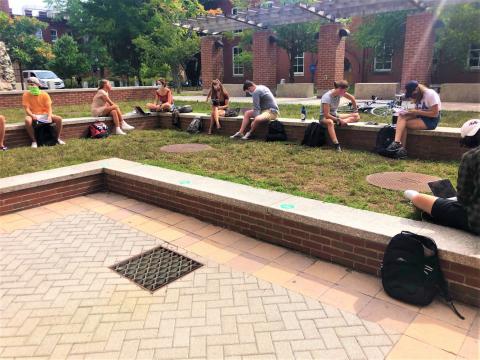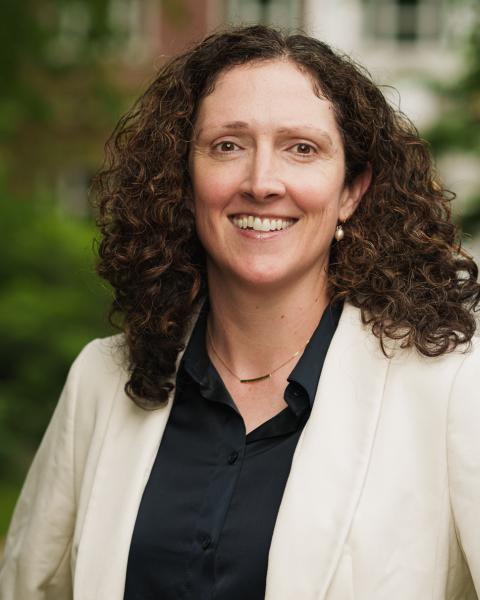Bringing Economics Education into Nature’s Classroom

The back to school season is all about being adaptive, flexible, and creative, especially this year. Students and teachers throughout the country are facing a new and challenging reality of how to teach and learn while staying healthy. Simultaneously, communities are facing economic challenges as they deal with the indirect impacts of the pandemic. In addition to my state specialist role, I am fortunate to teach in UNH’s Environmental and Resource Economics (EREC) program within the Natural Resources and Environment Department. This semester I’m teaching Community Economics, a course on the principals of local economic development and how communities’ use their assets- financial, human, social, and natural. I cover topics such as quality of life, business location and retention, sectoral economics, land use, the value of nature and social connections in economic vibrancy. This semester we are also looking at the local economic impacts of a global pandemic. Additionally, we are exploring the history of economic development in Durham by reading and discussing the book Small Town Big Oil. Students will also take self-guided field trip to Adam’s Point as well as have the opportunity to learn from severa.png) l guest speakers.
l guest speakers.
We are in the midst of very challenging times for communities across the globe and I can’t think of a more important subject for students in Environmental Economics, Community Planning, and Conservation studies to be exploring (ok, I’m a little biased but still!). Like many of my faculty colleagues, I’m working to support students who want to take the course remotely and in person. To this end I’m often “flipping” the classroom, where students review recorded materials and readings in preparation for discussion and concept review both in person and through Zoom. For students in person, most of our classes are being held in an outdoor classroom behind James Hall. The Noonan Outdoor Classroom was a gift from Frank and Patricia Noonan. This classroom is a fantastic resource that allows us to gather together and experience the benefits of being outside in the fresh air and inspired by the intricacies of nature. The classroom is right next to an academic building and thus we have strong Wifi as well, so students can join us remotely if they need to. While we still wear masks (I also wear a portable microphone and speaker so students can hear me through the mask), keep our distance, and sanitize our hands, when the weather is good, this classroom is the best of both worlds. The students have been extremely respectful and engaged in class discussion and have shared that they enjoy being out in the fresh air.
As a specialist of Nature Economy (how communities and individuals use and benefit from natural assets), I have always had a great appreciation for the natural world and the role it plays in quality of life. Many of us are spending more time outside than ever and one silver lining of the pandemic may be a greater appreciation of the role nature plays in keeping our communities and economies thriving. This semester nature is also playing a starring role in the classroom.
